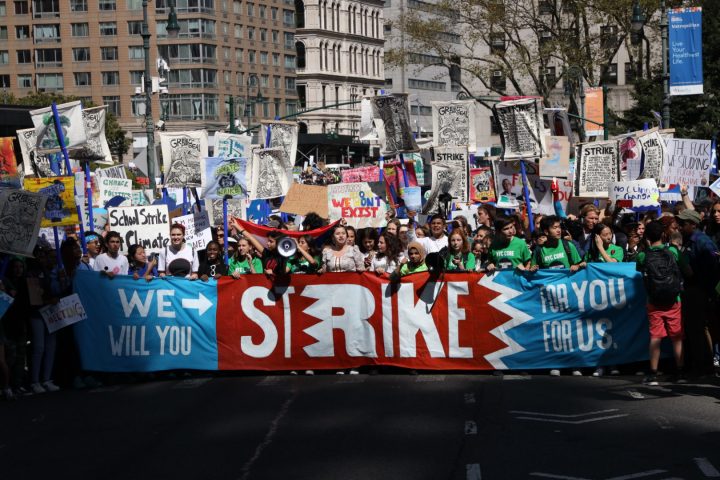“Our world as we know it will no longer exist if we continue down the trajectory that we’re going. Something must be done. Elected officials and world leaders have shown us that they do not yet have the courage to take the action necessary to save the planet on their own. And so we must show them. We must tell why it’s important. The solutions are out there. There is still time to do something. There is still time to fix what we’ve broken. But we must act now.” – Katie Eder, Executive Director, Future Coalition
Hundreds of thousands people across America left school and work today to demand that leaders in the U.S. and across the world take action to address the climate crisis. Organized and led by youth in the Climate Strike Coalition, the demonstrations today represent the largest climate strike in U.S. history and kick off a week of sustained international actions to call for transformative changes to climate policy.
New York, Boston, and San Francisco are expected to have the largest turnouts, with more than 300,000 striking in NYC alone. The Strike itself is nationwide, with more than 1,100 locations in all 50 states, Washington DC, Puerto Rico, and Guam. There were more than a dozen strike locations in Puerto Rico alone, commemorating the second anniversary of Hurricane Maria. School has been canceled for more than 200,000 students in Houston, America’s largest fourth largest city, because of extreme weather. Students will proceed with their strike and point to the signals between climate change and Tropical Storm Imelda as a reason for taking action.
The Climate Strike earned the support of elected leaders, businesses, and schools. Companies like Patagonia and Ben and Jerry’s are closed today to encourage employees to join the strike. The UN Secretary General applauded the action, days before world leaders gather the UN Climate Action Summit to discuss climate action.
The Climate Strike Coalition released a set of policy demands ahead of the strike, calling for transformative climate action. The demands are the first time that such a broad coalition of youth groups have coalesced around a Green New Deal. The demands include a strong focus on protecting people, through saving indigenous land, helping frontline communities, and supporting a just transition.
The strikes take place during a surge of direct actions to demand climate solutions. Many of the youth groups involved in today’s events have been striking for more than a year. International strikes are planned over the next week in more than 4,500 locations across the world.
The youth-led Climate Strike is the largest climate mobilization in U.S. history, with more than 1,000 strikes planned in 50 states. The effort is organized by the U.S. Youth Climate Strike Coalition and backed by dozens of adult organizations.






